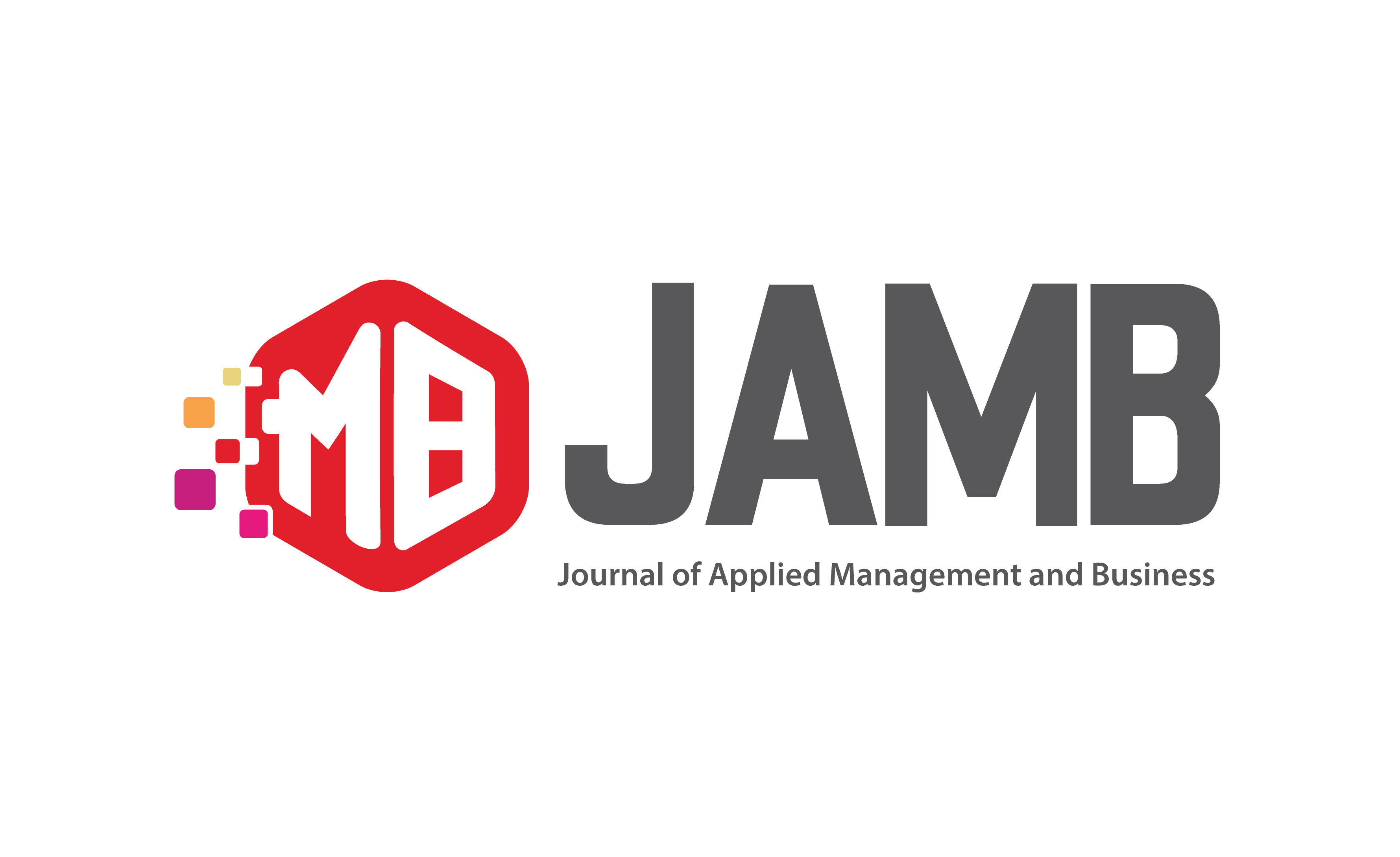The Influence of Flexible Working Arrangement on Employee Performance with Work Life Balance as a Mediation
DOI:
https://doi.org/10.37802/jamb.v6i1.1034Keywords:
Employee Performance, Flexible Working Arrangement, Work Life BalanceAbstract
Flexible working arrangement (FWA) is increasingly being implemented to improve operational efficiency and employee welfare. Technological advances support the implementation of FWA, but challenges in human resource management remain. Work-life balance is a key factor that influences employee performance in a flexible work system. The study analyzed the relationship between flexible working arrangements, work-life balance, and employee performance to better understand the mechanisms underlying this relationship. This study used purposive sampling with 305 respondents. Data were gathered by means of Google Form and analyzed using the SEM-PLS method. Flexible work arrangements have a positive but insignificant direct impact on employee performance. However, FWA significantly has positive impact on work-life balance, which in turn improves employee performance and enacts as a mediator in the correlation. This study found that FWA improves employee performance through work-life balance as a mediator. The implications of the study encourage the effective implementation of FWA, with recommendations for further research on demographic factors and industry sectors.
Downloads
References
Aprida, O., Trinanda, R., Azis, F., & Fathurrochman, I. (2024). Analisis Peran Penting Sumber Daya Manusia dalam Kepemimpinan Organisasi Pendidikan Islam. AL-MANAR: Jurnal Komunikasi Dan Pendidikan Islam, 13(1), 153-169.
Aprilita, A. (2024). Strategi Pengelolaan Sumber Daya Manusia pada Generasi Z Tantangan dan Peluang di Era Digital Untuk Meningkatkan Kematangan Karir. Advances In Social Humanities Research, 2(2), 221-235.
Sulistiawati, E., Iskandar, A., & Kartakusumah, B. (2024). Pengaruh Penggunaan Aplikasi Kehadiran Mobile (K-Mob) dan Disiplin Pelaksanaan Skema Jam Kerja Terhadap Kinerja Aparatur Sipil Negara (ASN) Pada Bidang Sumber Daya Kesehatan Dinas Kesehatan Provinsi Jawa Barat. Eksekusi: Jurnal Ilmu Hukum Dan Administrasi Negara, 2(2), 425-438.
Balerina, A., Daulai, B. I. S., Damayanti, N., & Malikhah, I. (2024). Analisis Kompensasi, Kepuasan Kerja dan Komitmen Organisasi Terhadap Kinerja Karyawan (studi kasus pada PT. Tirta Investama). Neraca: Jurnal Ekonomi, Manajemen Dan Akuntansi, 2(3), 115-122.
Idrus, M. I. (2024). Dampak Work-Life Integration Terhadap Kesejahteraan Karyawan Dan Produktivitas Kerja: A Systematic Literature Riview. Journal of Economic, Business and Accounting (COSTING), 7(3), 6396-6405.
Kattenbach, R., Demerouti, E., & Nachreiner, F. (2010). Flexible working times: Effects on employees’ exhaustion, work-nonwork conflict and job performance. Career Development International, 15(3), 279–295. https://doi.org/10.1108/13620431011053749.
Riđić, O., Avdibegović, A., & Bušatlić, S. (2016). Analysis Of Relationship Between Flexible Work Arrangements, Work Life Balance And Employees’ Efficiency: Evidence From Bosnia And HERZEGOVINA’S (BiH) IT SECTOR. Journal of Economics and Business, 14(2), 44–55. http://hdl.handle.net/10419/193863.
Bett, F., Sang, H., & Chepkwony, P. (2022). Flexible Work Arrangement and Employee Performance: An Evidence of Work-life Balance Practices. East African Journal of Business and Economics, 5(1), 80–89. https://doi.org/10.37284/eajbe.5.1.557.
Sihombing, P. R., & Arsani, A. M. (2022). Aplikasi SmartPLS Untuk Statistisi Pemula (Issue March).
Kurniawan, V. K. (2022). Determinan Work from Home dan Flexible work arrangements terhadap Employee Performance PT CTI. Jurnal Manajemen Bisnis Dan Kewirausahaan, 7(2), 421–430.
Hada, R. I. P., Fanggidae, R. E., & Nursiani, N. P. (2020). Flexible Working Arrangement Dan Pengaruhnya Terhadap Work-Life Balance Pada Resellers Online Shop. Jurnal Ekobis: Ekonomi Bisnis & Manajemen, 10(2), 162–171.
Witriaryani, A. S., Putri, A., Jonathan, D., & Khairal, T. M. (2022). Pengaruh Work-life Balance dan Flexible Working Arrangement terhadap Job Performance dengan Dimediasi oleh Employee Engagement. 5(2), 932–947.
Gunawan, T. M. E., & Franksiska, R. (2020). Pengaruh Pengaturan Kerja yang Fleksibel Terhadap Kinerja Karyawan dengan Work life Balance sebagai Variabel Mediasi. 8(3).
Downloads
How to Cite
Issue
Section
License
Copyright (c) 2025 Journal of Applied Management and Business

This work is licensed under a Creative Commons Attribution 4.0 International License.











